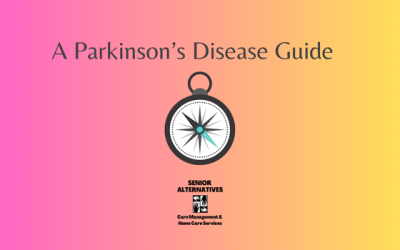January 26, 2024

– Bringing caregivers or care managers into a senior’s home can truly empower them. One of the most significant advantages is the personalized, one-on-one attention that a caregiver can provide, ensuring that the individual’s specific needs and preferences are met. This level of personalized care can improve the elder’s physical and emotional well-being, reinforcing their sense of dignity and independence. It not only ensures that their physical health needs, such as medication management or mobility assistance, are met but also addresses their emotional needs by providing companionship and mental stimulation. If you employ an agency that truly matches mom or dad’s needs, personality, lifestyle and background with the right caregiver, success will be guaranteed.
Another advantage is the comfort and familiarity that home surroundings provide. Elders can follow their normal routines, surrounded by personal belongings, which can greatly enhance their mental and emotional health. Additionally, home care services can provide essential respite for family members, relieving them of the constant worry and allowing them to enjoy quality time with their loved one, rather than focusing solely on care responsibilities. In some cases, agencies will provide a caregiver that can drive an elder to appointments or shopping, the park, or simply a scenic drive and add another layer of support, also a level of entertainment that may be missing. This is especially key for an elder that has decide to isolate due to an inability to drive or get around easily.
However, there can also be challenges associated with in-home care. For example, the cost of professional caregivers can be significant, and not all families may be in a position to afford this service. Long Term Care Insurance policies are typically policies that cover such in-home services, otherwise elders or families pay out-of-pocket for these costs. Some elders have paid into these policies for years and when the time comes to need services they fail to explore the benefits. There may also be concerns about privacy, as having a non-family member in the home can feel intrusive to some. Furthermore, it can be emotionally challenging for the elder to accept that they need assistance, which may lead to opposition. On the other hand the positive benefits associated with accepting help tremendously outweigh what is foreseen as a negative.
A tactic often used is to start the process gradually, by brining in some help once per week for a few hours per day. This will help acclimate a senior to the idea of a change in routine.
Therefore, it’s important for families to weigh the pros and cons and consider their loved one’s unique situation and preferences. It’s also important to involve the elder in the process as much as possible (unless there is a degree of memory loss involved), ensuring their needs and desires are prioritized. This balanced approach can help ensure that the solution chosen truly empowers the elder, promoting their overall quality of life.
To schedule a free 45 minute consultation about this and other related topics, reach out to us @ 888.451.4290 – We are here to help adult children deal with aging parent’s issues.
Related Articles
Why People in Blue Zones Thrive and Live Longer
Blue Zones are regions where people live longer, healthier lives compared to the global average. These areas have been studied extensively to find common denominators and answers about what makes these places unique. One of the key components of these lifestyles is community engagement, or having a strong sense of belonging and support from others. Read on to know more about Blue Zones and how we can duplicate their lifestyle and best practices.
Understanding Parkinson’s Disease
April is Parkinson’s disease awareness month, with that in mind we put together a blog
A guide to effectively enhance, remodel or retrofit homes and environments for older adults.
This week, we created a guide on how to accommodate a home or environment for older adults, especially people with memory loss which can be vital for their comfort and well-being. Whether the memory loss stems from conditions like Alzheimer’s or short-term impairments, retrofitting a home can significantly enhance safety, accessibility, and overall quality of life.





